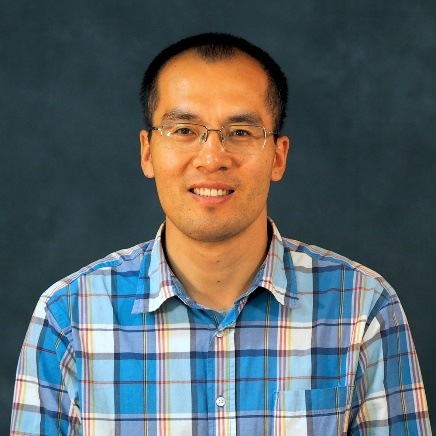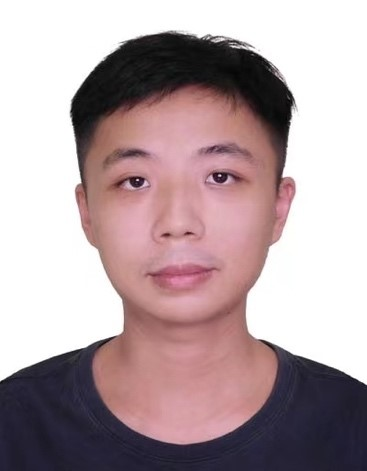"UESTC (University of Electronic Science and Technology of China) - UofG (University of Glasgow) Academic Forum" jointly organized by the School of Information and Communication Engineering and co-sponsored by the Glasgow College at UESTC, has invited Dr Chong Lird of the University of Glasgow and Professor Weidong Mei from School of Information and Communication Engineering to give a lecture. The arrangement is as follow, and interested students and faculty members are welcome to attend.
Topics:
Topic 1:Empowering THz Applications with Integrated Electronic Devices
Topic 2:Boosting THz Wireless Coverage with Multi-IRS-Reflection Beam Routing
Speakers:
Dr Chong Li (Senior Lecturer, University of Glasgow)
Weidong Mei (Professor, UESTC)
Time:
15:30 (Friday), April 21, 2023
Ways to Participate:
Online platform: ZOOM Meeting
Conference links:
https://uofglasgow.zoom.us/j/84658141023?pwd=RnVVbmM0Rkg2T0RxbFBaaFdyb282Zz09
Host:
Dr Julien Le Kernec (Senior Lecturer)
Topic 1:
The increasing demand for high-speed wireless/mobile communications and high-resolution radar and remote sensing has led to the exploration of sub-millimetre wave and terahertz frequencies. While various enabling technologies have been proposed in the past few decades, few have been implemented in practical applications due to limitations in size, cost, output power, and system integration, particularly in 6G mobile communication handsets. In this presentation, the latest developments in THz electronics will be reviewed, with a focus on mainstream semiconductor technologies such as SiGe/Si CMOS, and III-V. Additionally, research activities and capabilities at the University of Glasgow, particularly in the Microwave and Terahertz Electronics (MaTE) research group, will be highlighted.
Topic 2:
Intelligent reflecting surface (IRS) is a digitally controlled metasurface that can be densely deployed in wireless environment to reconfigure the propagation channels via tunable signal reflections, which is promising to resolve the coverage issues arising in the terahertz (THz) wireless communications. The existing research on IRS has mainly considered single-IRS reflections, which may be insufficient to achieve blockage-free coverage under some harsh propagation conditions (e.g., indoor environment with dense blockages). In this talk, we will focus on the general multi-IRS-reflection systems to tackle this challenge by leveraging the line-of-sight (LoS) path diversity provided by the densely deployed IRSs. In particular, a new graph-based optimization framework is introduced to design the optimal beam routes enabled by multi-IRS reflections for maximizing the system capacity. The implementation issues, e.g., multi-IRS deployment and channel acquisition, are also discussed.
Speakers’ profiles:

Dr. Chong Li received his MSc (distinction) in Communications Engineering from the University of Manchester in 2007 and his PhD in monolithic millimetre-wave signal sources and integrated circuits from the University of Glasgow in 2012. He stayed in the same group, working on the development of terahertz imaging systems, before joining the National Physical Laboratory as a Higher Research Scientist in January 2014. In August 2017, he returned to the University of Glasgow as a Lecturer and became a Senior Lecturer in 2021. Dr. Li leads the Microwave and Terahertz Electronics (MaTE) research group, which currently has 11 RAs and PhD students. He’s secured more than £3M grants and published 95 papers, 1 book chapter and 3 patents. He is also the Director of the Centre for Advanced Electronics, which houses state-of-the-art microwave and terahertz test facilities, including the recently awarded £2.6M 6G on-wafer test cluster. Dr. Li's current research interests include III-V semiconductor devices, micro and nano fabrication, microwave and terahertz devices, and their applications in wireless communications, quantum computer systems, and metrology.

Dr. Weidong Mei received the B.Eng. degree in communication engineering and the M.Eng. degree in communication and information systems from the University of Electronic Science and Technology of China, Chengdu, China, in 2014 and 2017, respectively, and the Ph.D. degree from the NUS Graduate School, National University of Singapore, in 2021 under the Integrative Sciences and Engineering Programme (ISEP) Scholarship.
He was a Research Fellow with the Department of Electrical and Computer Engineering, National University of Singapore, from July 2021 to January 2023. He is currently a Professor with the University of Electronic Science and Technology of China. His research interests include intelligent reflecting surface, wireless drone communications, physical-layer security, and convex optimization techniques.
Dr. Mei was a recipient of the Outstanding Master's Thesis Award from the Chinese Institute of Electronics in 2017 and the Best Paper Award from the IEEE International Conference on Communications in 2021. He serves as a Reviewer/TPC Member for various IEEE journals/conferences. He was honored as the Exemplary Reviewer of the IEEE Transactions on Communications from 2019 to 2020, the IEEE Wireless Communications Letters in 2019, 2021, and 2022, and the IEEE Communications Letters from 2021 to 2022.
Organizer:School of Information and Communication Engineering
Co-organizer:Glasgow College